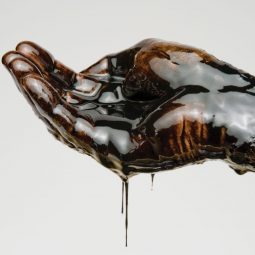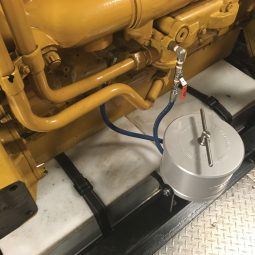Extending Oil Life with Advanced Contamination Control
 Oil changes are not optional—they are necessary due to contamination and operating conditions. Engines function in diverse environments under varying workloads, leading to different contamination rates. This is why manufacturers provide only recommended oil change intervals rather than fixed schedules. With affordable oil analysis now widely available, traditional oil change practices have evolved. Instead of relying solely on prescribed intervals, preventative maintenance programs use oil sampling to track contamination, oil condition, and wear trends—helping identify potential issues before they escalate. More importantly, oil analysis provides critical insights into additive package health and contamination levels. Combined with advanced filtration, this enables extended oil service intervals, reduced engine wear, cost savings, and lower environmental impact. Oil does not degrade, it gets contaminated, and additives deplete. Why does an OEM recommend a 250-hour oil change for an engine with 70 liters of oil but 500 hours for the same engine with 140 liters? With twice the oil volume, it takes twice as long for the oil to get dirty and oil additives to deplete. We remove it as it enters the oil, recycling the oil while the engine is in use. Oil should be changed based on contamination, not arbitrary intervals. Keeping acidity low, viscosity stable, and particulates minimal extends oil life without harming performance. Oil Recycling Technologies™ (ORT) remove contaminants and preserve additives, allowing longer oil change intervals, lower maintenance costs, and a reduced environmental impact.
Oil changes are not optional—they are necessary due to contamination and operating conditions. Engines function in diverse environments under varying workloads, leading to different contamination rates. This is why manufacturers provide only recommended oil change intervals rather than fixed schedules. With affordable oil analysis now widely available, traditional oil change practices have evolved. Instead of relying solely on prescribed intervals, preventative maintenance programs use oil sampling to track contamination, oil condition, and wear trends—helping identify potential issues before they escalate. More importantly, oil analysis provides critical insights into additive package health and contamination levels. Combined with advanced filtration, this enables extended oil service intervals, reduced engine wear, cost savings, and lower environmental impact. Oil does not degrade, it gets contaminated, and additives deplete. Why does an OEM recommend a 250-hour oil change for an engine with 70 liters of oil but 500 hours for the same engine with 140 liters? With twice the oil volume, it takes twice as long for the oil to get dirty and oil additives to deplete. We remove it as it enters the oil, recycling the oil while the engine is in use. Oil should be changed based on contamination, not arbitrary intervals. Keeping acidity low, viscosity stable, and particulates minimal extends oil life without harming performance. Oil Recycling Technologies™ (ORT) remove contaminants and preserve additives, allowing longer oil change intervals, lower maintenance costs, and a reduced environmental impact.
Contamination Management
 A standard oil and filter aren’t enough to extend engine life or oil change intervals. Post-2009 engines, built for stricter emissions standards, run hotter and accumulate more contaminants, requiring advanced filtration. Standard oil filters use a full-flow system, meaning all oil passes through in a single cycle. Rated at 25 microns, they prioritize flow rate over capturing ultra-fine contaminants (1-15 microns) like soot and carbon—key culprits of engine wear. Full-flow filters also fail to remove moisture from combustion, leading to acid formation, additive depletion, and corrosion. Without advanced filtration, oil stays dirty, wear increases, and service life shortens. Oil Recycling Technologies™ (ORT) polishes small oil volumes at low flow rates, filtering to 1 micron using a multi-ply axial-flow cellulose element. This removes ultra-fine contaminants and moisture full-flow filters miss. With a four-stage filtration system, ORT’s innovative replacement elements meet contamination challenges in modern engines with advanced emissions controls, including Exhaust Gas Recirculators (EGRs), Diesel Particulate Filters (DPFs), and ACERT technology. Due to superior contaminant removal, ORT improves cleanliness, reduces wear, and extends life, even in older engines.
A standard oil and filter aren’t enough to extend engine life or oil change intervals. Post-2009 engines, built for stricter emissions standards, run hotter and accumulate more contaminants, requiring advanced filtration. Standard oil filters use a full-flow system, meaning all oil passes through in a single cycle. Rated at 25 microns, they prioritize flow rate over capturing ultra-fine contaminants (1-15 microns) like soot and carbon—key culprits of engine wear. Full-flow filters also fail to remove moisture from combustion, leading to acid formation, additive depletion, and corrosion. Without advanced filtration, oil stays dirty, wear increases, and service life shortens. Oil Recycling Technologies™ (ORT) polishes small oil volumes at low flow rates, filtering to 1 micron using a multi-ply axial-flow cellulose element. This removes ultra-fine contaminants and moisture full-flow filters miss. With a four-stage filtration system, ORT’s innovative replacement elements meet contamination challenges in modern engines with advanced emissions controls, including Exhaust Gas Recirculators (EGRs), Diesel Particulate Filters (DPFs), and ACERT technology. Due to superior contaminant removal, ORT improves cleanliness, reduces wear, and extends life, even in older engines.